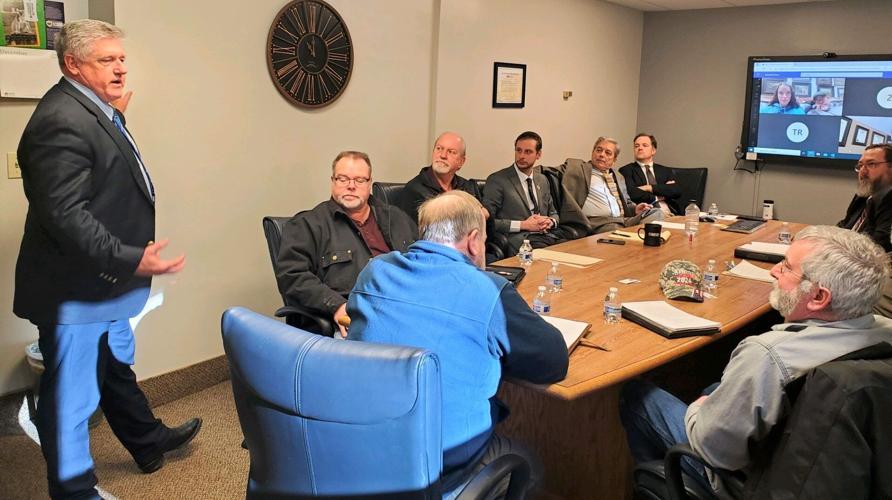By: Mike Smith
Montana Standard
 A bill designed to curb reckless and dangerous bounty-hunting tactics in Montana has advanced to the state Senate and backers say it’s likely to pass in the coming days.
A bill designed to curb reckless and dangerous bounty-hunting tactics in Montana has advanced to the state Senate and backers say it’s likely to pass in the coming days.
It passed the House on an 83-17 vote in late January, was endorsed by the Senate Business, Labor and Economic Affairs on Thursday and the full Senate is expected to vote on it soon. Its sponsor in that chamber is Butte Democrat Ryan Lynch.
A few changes have been made so if approved by the Senate, the bill must return to the House for another vote. But its biggest proponent, Montana Auditor and Insurance Commissioner Troy Downing, is confident it will win final approval and be signed by Gov. Greg Gianforte.
Downing, a Republican, proposed the legislation in response to a botched bounty hunt in Butte that turned fatal and other violent incidents.
The bill would require all bail recovery agents to be trained and licensed and in most circumstances, notify police of planned apprehensions. They would have to be 21 or older, could not be convicted felons and must be instructed on procedures for detaining people, their civil rights, the use of force and civil liability, among other things.
Numerous bondsmen have opposed the bill, saying it’s restrictive and based on the misdeeds of a few bad actors.
They have sought changes and especially want a provision requiring bail agents to charge and collect at least 10-percent of cash bonds upfront. They say it would eliminate “payment plans” and defendant debts that can lead to confrontations.
The provision is included in another bill the bond industry backed that also passed the House. It is sponsored by Republican Rep. Steve Gunderson of Libby, whose family was in the bail bond industry for 35 years.
“The main tool for a bad actor or a bad bondsman is to put a defendant on a payment plan and keep their hooks in them by threatening jail throughout their court process,” Gunderson said during a Senate Business and Labor Committee hearing on that bill.
That bill was tabled by the committee last week, likely killing it, and the 10-percent bail provision was not added to Downing’s bill. He opposed its inclusion.
Frank Cote, government affairs director in the Auditor’s Office, said bondsman typically charge defendants 10 percent up front, but requiring them to do that would be unique in the insurance industry or any industry.
And adding such a requirement to Downing’s bill would “muddy the waters” of its other provisions, Cote said.
Downing and the bill’s House sponsor, Republican Rep. Bill Mercer of Billings, say there have been several reckless bounty hunts in recent years that put innocent people in danger.
The Butte incident was even worse, they say, and Mercer has called it “the tipping point” that led to legislation this year.
Prosecutors say on Dec. 19, 2021, bondsman Jay Hubber and another man, Nicholas Jaeger, barged into William Harris’ house in Butte looking for a bail-jumper. There were several other people in the house, too.
They charged Hubber and Jaeger — a convicted felon — with deliberate homicide and aggravated burglary. Both men have pleaded not guilty and are taking their cases to trial, with Hubber’s set for May 1.
Proponents say bail bondsmen play an important role in Montana’s criminal justice system but some basic regulations are needed.
Click HERE to view the article.
Was this helpful?
Please give us your feedback!
Please let us know how we could improve this article.
